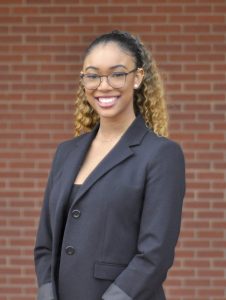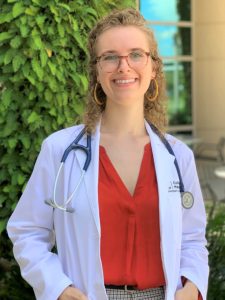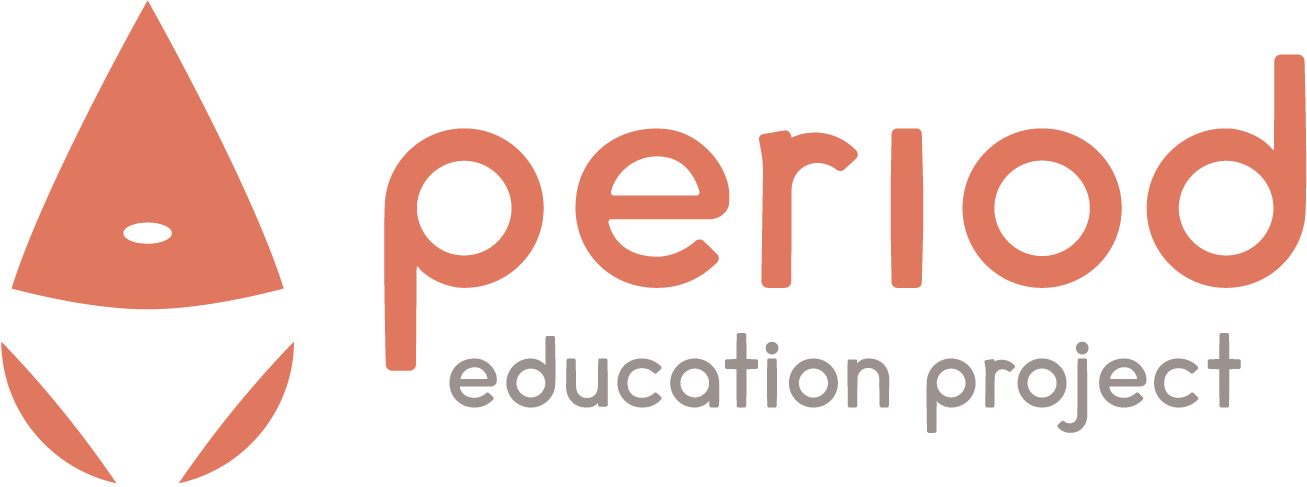By Sophia DeLuca, PEP Blog Editor
Period Pros Aliyah Simpson and Kelly Sutter are used to leading PEP rallies for pre-teens. Instead of middle school girls however, their audience on August 16 was made up of a much different demographic.

Aliyah Simpson, Period Pro

Kelly Sutter, Period Pro
Simpson, a Third-year Medical University of South Carolina medical student, and Sutter, a Third-year University of Central Florida medical student, led a PEP rally via zoom, for over 200 school nurses at the “Summer Professional Development Series for the School District of Philadelphia.” The goal of the event was to expose school nurses to the content in menstrual health workshops or “PEP rallies” led by medical students like Simpson and Sutter.
Since its founding in 2021, the Period Education Project (PEP) has facilitated over 50 rallies across the U.S., through schools, afterschool programs, community organizations, and other groups. The presentation for school nurses in Philadelphia was intended to get out the word about PEP and help connect school nurses with the organization and resources for their students.
While the content they presented during the PEP rally was the same, Sutter noticed the difference in facilitation style compared to a typical rally.
“Normally in a PEP rally you have interaction because you are seeing the kids and they are asking their questions. With this one, we were rolling through it–– ‘this is when you WOULD ask questions or when you WOULD say this.’ There weren’t as many personal interactions.”
Still, when Sutter and Simpson checked the zoom chat after the meeting, they could tell their presentation struck a chord. There were lots of positive comments, cheering emojis, and thank yous. Some even commented that they learned some new things about menstrual health.
“At the end of the rally a lot of the nurses were like ‘How can we bring this to our school?’” Simpson said.
The affirmative messages show that PEP rallies hosted in schools fill a major need. Only 22 states require medically accurate reproductive health education, meaning many young girls don’t learn essential information about their menstrual cycles in health classes. This lack of knowledge can cause stigma, shame, and misinformation that impact health outcomes for women through adulthood.
Due to limited resources, Sutter believes that many young girls and teens learn about periods as they experience them.
“You go from the symptoms you are experiencing, to learning about it. It’s backwards the way that we learn,” she said.
PEP exists to help fill this gap in education, and connect young people with knowledge early. Hosting PEP rallies in schools makes essential health information much more accessible for young adults.
Sutter sees this early start as a game-changer: “Instead of having a negative experience and then wanting to fix it, it [your period] can be a positive experience from the beginning.”
Introducing school nurses to PEP opens up opportunities to facilitate these positive period experiences. Beyond the exposure, Sutter saw another benefit to the event, watching Simpson and Sutter run a PEP rally would also “help school nurses know how we communicate about menstrual health to young girls, so that when they talk to their own students, they will know the terminology and framing,” she said.
For Simpson and Sutter, Whether it’s school nurses, or young girls, their overarching goals remain the same: “Whatever we can do to educate is always important,” Simpson said.

Recent Comments